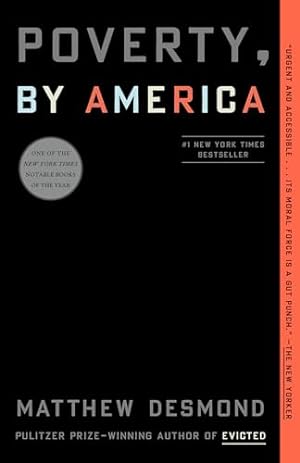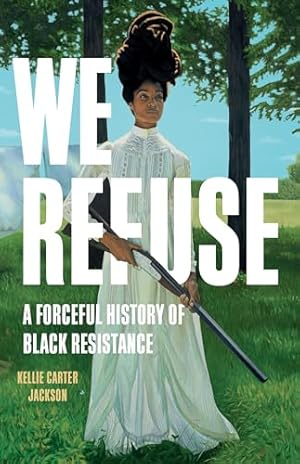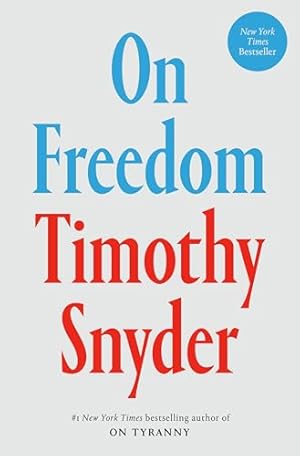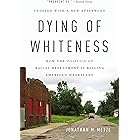Learn more
Your Memberships & Subscriptions

Download the free Kindle app and start reading Kindle books instantly on your smartphone, tablet, or computer - no Kindle device required.
Read instantly on your browser with Kindle for Web.
Using your mobile phone camera - scan the code below and download the Kindle app.



 Audible sample
Audible sample The Sum of Us: What Racism Costs Everyone and How We Can Prosper Together (One World Essentials) Kindle Edition
WINNER OF THE PORCHLIGHT BUSINESS BOOK AWARD • ONE OF THE BEST BOOKS OF THE YEAR: Time, The Washington Post, St. Louis Post-Dispatch, Ms. magazine, BookRiot, Library Journal
“This is the book I’ve been waiting for.”—Ibram X. Kendi, #1 New York Times bestselling author of How to Be an Antiracist
Look for the author’s podcast, The Sum of Us, based on this book!
Heather McGhee’s specialty is the American economy—and the mystery of why it so often fails the American public. From the financial crisis of 2008 to rising student debt to collapsing public infrastructure, she found a root problem: racism in our politics and policymaking. But not just in the most obvious indignities for people of color. Racism has costs for white people, too. It is the common denominator of our most vexing public problems, the core dysfunction of our democracy and constitutive of the spiritual and moral crises that grip us all. But how did this happen? And is there a way out?
McGhee embarks on a deeply personal journey across the country from Maine to Mississippi to California, tallying what we lose when we buy into the zero-sum paradigm—the idea that progress for some of us must come at the expense of others. Along the way, she meets white people who confide in her about losing their homes, their dreams, and their shot at better jobs to the toxic mix of American racism and greed. This is the story of how public goods in this country—from parks and pools to functioning schools—have become private luxuries; of how unions collapsed, wages stagnated, and inequality increased; and of how this country, unique among the world’s advanced economies, has thwarted universal healthcare.
But in unlikely places of worship and work, McGhee finds proof of what she calls the Solidarity Dividend: the benefits we gain when people come together across race to accomplish what we simply can’t do on our own. The Sum of Us is not only a brilliant analysis of how we arrived here but also a heartfelt message, delivered with startling empathy, from a black woman to a multiracial America. It leaves us with a new vision for a future in which we finally realize that life can be more than a zero-sum game.
LONGLISTED FOR THE ANDREW CARNEGIE MEDAL
- LanguageEnglish
- PublisherOne World
- Publication dateFebruary 16, 2021
- File size12.9 MB
Shop this series
See full series-
First 3$33.97
-
First 5$58.95
-
First 10$121.90
-
All 11$127.89
-
First 3$33.97
-
First 5$58.95
-
First 10$121.90
-
All 11$127.89
This option includes 3 books.
This option includes 5 books.
This option includes 10 books.
This option includes 11 books.
Customers also bought or read
- Dying of Whiteness: How the Politics of Racial Resentment Is Killing America's Heartland
 Kindle Edition$12.99$12.99
Kindle Edition$12.99$12.99 - How the Word Is Passed: A Reckoning with the History of Slavery Across AmericaEditors' pick
 Kindle Edition$12.99$12.99
Kindle Edition$12.99$12.99 - The Color of Law: A Forgotten History of How Our Government Segregated America
 Kindle Edition$9.15$9.15
Kindle Edition$9.15$9.15 - White Poverty: How Exposing Myths About Race and Class Can Reconstruct American Democracy
 Kindle Edition$9.99$9.99
Kindle Edition$9.99$9.99 - Four Hundred Souls: A Community History of African America, 1619-2019Editors' pick
 Kindle Edition$9.99$9.99
Kindle Edition$9.99$9.99 - Punished for Dreaming: How School Reform Harms Black Children and How We HealEditors' pick
 Kindle Edition$14.99$14.99
Kindle Edition$14.99$14.99
Customers who bought this item also bought
 The zero sum is a story sold by wealthy interests for their own profit, and its persistence requires people desperate enough to buy it.Highlighted by 2,664 Kindle readers
The zero sum is a story sold by wealthy interests for their own profit, and its persistence requires people desperate enough to buy it.Highlighted by 2,664 Kindle readers In my gut, I’ve always known that laws are merely expressions of a society’s dominant beliefs. It’s the beliefs that must shift in order for outcomes to change.Highlighted by 1,955 Kindle readers
In my gut, I’ve always known that laws are merely expressions of a society’s dominant beliefs. It’s the beliefs that must shift in order for outcomes to change.Highlighted by 1,955 Kindle readers The authors concluded that “making the changing national racial demographics salient led white Americans (regardless of political affiliation) to endorse conservative policy positions more strongly.”Highlighted by 1,736 Kindle readers
The authors concluded that “making the changing national racial demographics salient led white Americans (regardless of political affiliation) to endorse conservative policy positions more strongly.”Highlighted by 1,736 Kindle readers
From the Publisher




Editorial Reviews
Review
“Illuminating and hopeful . . . McGhee isn’t a stinging polemicist; she cajoles instead of ridicules. She appeals to concrete self-interest in order to show how our fortunes are tied up with the fortunes of others. ‘We suffer because our society was raised deficient in social solidarity,’ she writes, explaining that this idea is ‘true to my optimistic nature.’ She is compassionate but also clear-eyed, refusing to downplay the horrors of racism. . . . There is a striking clarity to this book; there is also a depth of kindness in it that all but the most churlish readers will find moving.”—Jennifer Szalai, The New York Times
“One of the most fascinating things about The Sum of Us is how it challenges the assumptions of both white antiracism activists and progressives who just want to talk about class.”—The New York Times, “The Book That Should Change How Progressives Talk About Race”
“Required reading to move the country forward . . . Every so often a book comes along that seems perfectly timed to the moment and has the potential to radically shift our cultural conversation. [The Sum of Us] is one of those books. . . . It is a sometimes angry or frustrated book, rooted in McGhee’s long career at Demos trying and mostly failing to secure legislation that would benefit the public. But in the end, it’s a hopeful book because McGhee’s vision is so clear and so convincing.”—Chicago Tribune
“If everyone in America read this book, we’d be, not only a more just country, but a more powerful, successful, and loving one. A vital, urgent, stirring, beautifully written book that offers a compassionate roadmap out of our present troubled moment.”—George Saunders,New York Timesbestselling and Booker Prize–winning author of Lincoln in the Bardo
“Supported by remarkable data-driven research and thoughtful interviews with those directly affected by these issues, McGhee paints a powerful picture of the societal shortfalls all around us. There is a greater, more just America available to us, and McGhee brings its potential to light.”—BookPage
“[McGhee] takes readers on an intimate odyssey across our country’s racial divide to explore why some believe that progress for some comes at the expense of others. Along the way, McGhee speaks with white people who confide in her about losing jobs, homes, and hope, and considers white supremacy’s collateral victims. Ultimately, McGhee—a Black woman viewing multiracial America with startling empathy—finds proof of what she terms the Solidarity Dividend: the momentous benefits that derive when people come together across race. A powerful, singular, and prescriptive blend of the macro and the intimate.”—O: The Oprah Magazine
About the Author
Excerpt. © Reprinted by permission. All rights reserved.
“Why can’t we have nice things?”
Perhaps there’s been a time when you’ve pondered exactly this question. And by nice things, you weren’t thinking about hovercraft or laundry that does itself. You were thinking about more basic as-pects of a high-functioning society, like adequately funded schools or reliable infrastructure, wages that keep workers out of poverty or a public health system to handle pandemics. The “we” who can’t seem to have nice things is Americans, all Americans. This includes the white Americans who are the largest group of the uninsured and the impoverished as well as the Americans of color who are dispropor-tionately so. “We” is all of us who have watched generations of Amer-ican leadership struggle to solve big problems and reliably improve the quality of life for most people. We know what we need—why can’t we have it?“
Why can’t we have nice things?” was a question that struck me pretty early on in life—growing up as I did in an era of rising in-equality, seeing the wealthy neighborhoods boom while the schools and parks where most of us lived fell into disrepair. When I was twenty-two years old, I applied for an entry-level job at Demos, aresearch and advocacy organization working on public policy solutions to inequality. There, I learned the tools of the policy advocacy trade: statistical research and white papers, congressional testimony, litigation, bill drafting, media outreach, and public campaigns.
It was exhilarating. I couldn’t believe that I could use a spread-sheet to convince journalists to write about the ideas and lives of the people I cared most about: the ones living from paycheck to paycheck who needed a better deal from businesses and our government. And it actually worked: our research influenced members of Congress to introduce laws that helped real people and led to businesses changing their practices. I went off to get a law degree and came right back to Demos to continue the work. I fell in love with the idea that information, in the right hands, was power. I geeked out on the intricacies of the credit markets and a gracefully designed regulatory regime. My specialty was economic policy, and as indicators of economic inequality became starker year after year, I was convinced that I was fighting the good fight, for my people and everyone who struggled.
And that is how I saw it: part of my sense of urgency about the work was that my people, Black people, are disproportionately ill served by bad economic policy decisions. I was going to help make better ones. I came to view the relationship between race and inequality as most people in my field do—linearly: structural racism accelerates inequality for communities of color. When our govern-ment made bad economic decisions for everyone, the results were even worse for people already saddled with discrimination and disadvantage.
Take the rise of household debt in working-and middle-class families, the first issue I worked on at Demos. The volume of credit card debt Americans owed had tripled over the course of the 1990s, and among cardholders, Black and Latinx families were more likely to be in debt. In the early 2000s, when I began working on the issue, bankruptcies and foreclosures were rising and homeowners, particularly Black and brown homeowners, were starting to take equity out of their houses through strange new mortgage loans—but the problem of burdensome debt and abusive lending wasn’t registering on the radar of enough decision makers. Few politicians in Washington knew what it was like to have bill collectors incessantly ringing their phones about balances that kept growing every month. So, in 2003, Demos launched a project to get their attention: the first-ever comprehensive research report on the topic, with big, shocking numbers about the increase in debt. The report included policy recommenda-tions about how to free families from debt and avoid a financial melt-down. Our data resulted in newspaper editorials, meetings with banks, congressional hearings, and legislation to limit credit card rates and fees.
Two years later, Congress took action—and made the problem of rising debt worse. Legislators passed a bankruptcy reform bill sup-ported by the credit industry that made it harder for people ever to escape their debts, no matter how tapped out they were after a job loss, catastrophic medical illness, or divorce. The law wasn’t good for consumers, did nothing to address the real problems in family finances, and actually made the problem worse. It was a bad economic policy decision that benefited only lenders and debt collectors, not the public. This was a classic example of the government not doing the simple thing that aligned with what most Americans wanted or what the data showed was necessary to solve a big problem. Instead, it did the opposite. Why?
Well, for one thing, our inability to stop bankruptcy reform made me realize the limits of research. The financial industry and other corporations had spent millions on lobbying and campaign donations to gin up a majority in Congress, and many of my fellow advocates walked away convinced that big money in politics was the reason we couldn’t have nice things. And I couldn’t disagree—of course money had influenced the outcome.
But I’ll never forget something that happened on the last day I spent at the Capitol presenting Demos’s debt research to members of Congress. I was walking down the marble hallway of the Russell Senate Office Building in my new “professional” shoes—I was twenty-five years old—when I stopped to adjust them because they kept slipping off. When I bent down, I was near the door of a Senate office; I honestly can’t remember if it belonged to a Republican or a Democrat. I heard the bombastic voice of a man going on about the deadbeats who had babies with multiple women and then declared bankruptcy to dodge the child support, using the government to avoid personal responsibility. There was something in the senator’s invective that made my heart rate speed up. I stood and kept moving, my mind racing. Had we advocates entirely missed something about the fight we were in? We had been thinking of it as a class issue (with racial disparities, of course), but was it possible that, at least for some of the folks on the other side of the issue, coded racial stereotypes were a more central player in the drama than we knew?
I left Capitol Hill, watching the rush hour crush of mostly white people in suits and sneakers heading home after a day’s work in the halls of power, and felt stupid. Of course, it’s not as if the credit card companies had made racial stereotypes an explicit part of their communications strategy on bankruptcy reform. But I’d had my political coming-of-age in the mid-1990s, when the drama of the day was “ending welfare as we know it,” words that helped Bill Clinton hold on to the (white) political center by scapegoating (Black) single mothers for not taking “personal responsibility” to escape poverty. There was nothing explicit or conclusive about what I’d overheard, but perhaps the bankruptcy reform fight—also, like welfare, about the de-servingness and character of people with little money—was playing out in that same racialized theater, for at least one decision maker and likely more.
I felt frustrated with myself for being caught flat-footed (literally, shoe in hand!) and missing a potential strategic vulnerability of the campaign. I’d learned about research and advocacy and lobbying in the predominantly white world of nonprofit think tanks, but how could I have forgotten the first lessons I’d ever learned as a Black person in America, about what they see when they see us? About how quick so many white people could be to assume the worst of us . . . to believe that we wanted to cheat at a game they were winning fair and square? I hadn’t even thought to ask the question about this seemingly nonracial financial issue, but had racism helped defeat us?
Product details
- ASIN : B0871KZQ3G
- Publisher : One World (February 16, 2021)
- Publication date : February 16, 2021
- Language : English
- File size : 12.9 MB
- Text-to-Speech : Enabled
- Screen Reader : Supported
- Enhanced typesetting : Enabled
- X-Ray : Enabled
- Word Wise : Enabled
- Print length : 355 pages
- Best Sellers Rank: #65,904 in Kindle Store (See Top 100 in Kindle Store)
- #6 in Social Policy
- #19 in Social Classes & Economic Disparity
- #30 in Government Social Policy
- Customer Reviews:
About the author

Heather McGhee designs and advances policy solutions to inequality. The former president of the think tank Demos, McGhee drafted legislation, testified before Congress, and became a regular contributor on news shows including NBC’s Meet the Press. Now the chair of Color of Change, the nation's largest online racial justice organization, McGhee holds a BA in American Studies from Yale University and a JD from the University of California at Berkeley School of Law. She lives in Brooklyn with her husband, her twenty year-old cat and their chatty toddler.
Customer reviews
Customer Reviews, including Product Star Ratings help customers to learn more about the product and decide whether it is the right product for them.
To calculate the overall star rating and percentage breakdown by star, we don’t use a simple average. Instead, our system considers things like how recent a review is and if the reviewer bought the item on Amazon. It also analyzed reviews to verify trustworthiness.
Learn more how customers reviews work on AmazonCustomers say
Customers find the book comprehensive and well-researched, providing useful information and anecdotes. They describe it as a brilliant, well-written read that is worth their precious reading time and money. The book provides a history lesson on racism over the years from beginning to now. It helps further our conversation on race in America and offers workable countermeasures to systemic racism. Readers find the content insightful and expand their understanding in many ways.
AI-generated from the text of customer reviews
Customers find the book provides useful information and insightful descriptions. They appreciate the thorough research and detailed documentation. The book is educational and thought-provoking, providing a clear examination of America's original sin of racial injustice. Readers also mention that the book is not just an opinion work, with reference material and a critical perspective.
"...But somehow, she suffuses it all with love. "The Sum of Us" is not an easy read for us white Americans, not at all. It can be excruciating...." Read more
"...🖊️ top notch writing, research, and accessible presentation- an expert blend of meticulous data analysis, personal experiences, and investigative..." Read more
"...This book is also a great read. Besides facts, the recounting of events, references to social science research, and data, Heather tells us stories..." Read more
"good for perspective" Read more
Customers find the book engaging and well-written. They say it's a must-read for high schoolers, college students, and anyone interested in understanding what binds us together as one country. The writing is smooth and natural, with a great flow that connects everything together.
"...our country affirmed-- and by a Black American woman, no less-- as young, radical, unprecedented and still brimming with potential." Read more
"...Overall, an easy to read an novel account of how this country’s history has been perpetually shaped by racial divisions strategically sown by those..." Read more
"...🖊️ top notch writing, research, and accessible presentation- an expert blend of meticulous data analysis, personal experiences, and investigative..." Read more
"...McGhee has written an important and very accessible book that highlights the need to consider the racial component in any discussion about policy..." Read more
Customers find the book easy to read and engaging. They say it's well-written and worth their time. The content is thought-provoking and insightful, making it a valuable read for all Americans. Readers appreciate the author's hard work and positive outlook.
"This is a truly great, breakthrough book. I can’t recommend it highly enough...." Read more
"Heather McGhee has written an amazing book that is a must read. I learned so much from this book that I do not know where to begin...." Read more
"...In this excellent book, McGhee discusses the outsize impact racism has had on society as a whole – and it’s a perspective everyone should read...." Read more
"...I found this the best part of the book...." Read more
Customers find the book provides a useful history lesson on racism from beginning to now. They say it helps further the conversation on race in America and offers workable countermeasures to systemic racism. The book challenges the myth of racial hierarchy and white supremacy, providing an authentic look at how racism impacts everyone. Readers appreciate the way the author consolidates and elevates so much history and recent research into a comprehensive overview.
"...industrial and economic systems unsparingly, with history- and data-driven facts, and it’s never been made clearer to me just how pervasive racism..." Read more
"...💸 compelling truths about the high costs of racism, white supremacy, systemic oppression, and denial in *all* communities – be they white, nonwhite..." Read more
"...This book is also a great read. Besides facts, the recounting of events, references to social science research, and data, Heather tells us stories..." Read more
"...She combines history, economics, personal narratives, and tons of economic and sociological research to make her case that racism is very literally..." Read more
Customers find the book insightful and engaging. They say it opens their minds and expands their understanding. The book covers a variety of topics and elucidates a perspective. Overall, readers describe it as an interesting read that educates, argues, and inspires them to think and act.
"...country affirmed-- and by a Black American woman, no less-- as young, radical, unprecedented and still brimming with potential." Read more
"...🔍 eye-opening clarification about our shared realities and the invisible boundaries we all live within..." Read more
"...With a number of compelling quotable passages and eye-opening insights, "The Sum of Us" stands as a substantive, quality read." Read more
"...Mind blowing content and fascinating read." Read more
Reviews with images
a complete dismantling of the idea that the majority suffers due to the gains of the minority
Top reviews from the United States
There was a problem filtering reviews right now. Please try again later.
- Reviewed in the United States on May 26, 2021This is a truly great, breakthrough book. I can’t recommend it highly enough. Author Heather McGhee takes on American racism in a whole new way (for me), crisscrossing the country and relentlessly bringing the reader face to face with the universal damage and waste caused by racial discrimination and injustice. But somehow, she suffuses it all with love.
"The Sum of Us" is not an easy read for us white Americans, not at all. It can be excruciating. McGhee goes into every corner of our social, political, industrial and economic systems unsparingly, with history- and data-driven facts, and it’s never been made clearer to me just how pervasive racism is, how it was deliberately mapped out and built in—what that word “systemic” really means.
But I never, ever felt stigmatized or belittled. I never got that “Now YOU are the despised ‘other’” message I sometimes get from antiracist polemicists.
McGhee is profoundly merciful and even startlingly empathetic to us white folks, telling us how the upper echelon has bamboozled us into our untenable position, how much racism hurts us as well, its blowback hitting us too (as in toxic environments we mistakenly think we're safe from 'cause we're across "the tracks"), sometimes in even greater numbers than it does people of color, since there are more of us.
Her most vivid, urgent message is how much we can help ourselves by letting go of the lie of the “Zero-Sum Economic Model” that keeps us in constant fear and resentment by telling us that if those "others" gain anything, we will lose something— when in truth, an economic boom for Black Americans would expand both our public and private economies exponentially, and bring more prosperity to us all.
It’s the concept of the “solidarity dividend”—that whites could improve our lot (for we are struggling too, all over) by finding common cause with Black Americans, how it has already been proven that this happens when we make the effort and overcome our irrational fear.
Black America is a treasure we’ve buried at the behest of not just the hateful, vengeful former Confederacy and its Northern industrial and banking partners, but of the political ruling class, who want us to trust them more than each other. Remember that “trickle-down” mantra, about how we white folks on the floor would catch the best crumbs from the plutocrats’ table? It’s a baldly false promise.
Politicians helped raise up a prosperous white middle class with racially exclusionary government programs like the New Deal and the G.I. Bill, proving that government could do great things-- for us. Then, once so many of us were thriving, they convinced us that such government programs were downright evil-- and the beneficiaries lazy freeloaders-- when they benefited nonwhites. So now, there are no such bold, broad programs for anybody, of any race, but whites are brainwashed to console ourselves with the illusion that at least we’re not at the very bottom of the boat.
McGhee’s inspired, perfect recurring analogy is government-subsidized public pools, built for us in a midcentury surge, but that we shut down rather than comply with court orders to admit Black swimmers. The result? No one had a pool except rich people. And many of the remnants of that spite are still there in the shells of these public pools, still empty or half-buried like fossils, visions of a resource we decided we’d rather waste than share.
McGhee really reads our beads here. I promise you will twist and cringe if you’re white (though I hope Black readers scarf this book up too, so they’re armed with both its merciful vision and its irrefutable arguments). But you’ll see a path to redemption—our own.
Throughout this book, and leavening the pain, McGhee’s love for this country shines through, She ultimately endorses the idea of a true American Exceptionalism, reminding us that our work is so difficult-- so scarred with false starts, failures, conflicts and backlash-- because we’re still a new country, relatively, and because no one has ever tried anything like this before.
“Who is an American, and what are we to one another?” she writes. “We have to admit that this question is harder for us than in most other countries, because we are the world’s most radical experiment in democracy: a nation of ancestral strangers that has to work to find connection even as we grow more diverse every day.” After the rough ride we've taken in "The Sum of Us," it’s indescribably wonderful to hear our country affirmed-- and by a Black American woman, no less-- as young, radical, unprecedented and still brimming with potential.
- Reviewed in the United States on March 17, 2024“Wealth is where history shows up in your wallet, where your financial freedom is determined by compounding interest on decisions made long before you were born.” p. 276
I find i am highlighting passages on every page! The metaphor on p. 31 of “the room where it happens” is powerful: three white men, power brokers in government, business and labor, agreeing to a New Deal social contract that invested in our social infrastructure for three decades... until women and people of color started clambering at the door for a seat at the table, and instead of making room, they ripped up the contract and left the room, leaving workers to fend for themselves and bringing on a new era of widening inequality.
Also powerful is a metaphor she runs through the book about communities across the nation building and filling swimming pools as public (social and physical) infrastructure and then literally draining and dismantling them once they became open to non whites. Uses that as a metaphor too to how we used to invest in public college and might have gone the way of universal healthcare but drained the pool in the face of civil rights inclusion and racism against demographic changes. Ruin it for everyone rather than share in benefits for all.
Overall, an easy to read an novel account of how this country’s history has been perpetually shaped by racial divisions strategically sown by those in power, weaving together familiar and new facts and studies about state sponsored segregation and private action into a compelling argument that the great lengths that white communities have gone to to keep schools, jobs and other amenities separate is truly costing all of us in terms of learning, performance, progress and prosperity (on top of racism/segregation’s other costs in terms of loss of life, loss of social and cultural richness, and moral repugnance).
Top reviews from other countries
 max drukerReviewed in Canada on January 29, 2022
max drukerReviewed in Canada on January 29, 20225.0 out of 5 stars an exceptional meaningful contribution
A must read for anyone trying to understand the cost of racism and how it affects us all. Well reasoned and well written
-
 KD HoffmannReviewed in Germany on July 31, 2024
KD HoffmannReviewed in Germany on July 31, 20245.0 out of 5 stars Hervorragendes Buch
Tolles Buch mit einer Fülle origineller Gedanken und Einsichten! Wow! Die Autorin hat eine beachtliche Leistung erbracht. Chapeau!
 Mark McCullaghReviewed in Canada on December 28, 2021
Mark McCullaghReviewed in Canada on December 28, 20215.0 out of 5 stars Deeply informed, sober and illuminating
Very empirical and historically informed. Loved all the interviews with ground-level people making awesome changes in their communities! Deep insights
 Daniel GlassReviewed in Canada on March 11, 2021
Daniel GlassReviewed in Canada on March 11, 20215.0 out of 5 stars Awesome book
Tells the true history. A must read for anyone that cares about this world going forward. An amazing book that you must read.
 Amazon CustomerReviewed in Canada on April 17, 2021
Amazon CustomerReviewed in Canada on April 17, 20215.0 out of 5 stars A must read
This book should be read by every American. Then maybe...











































